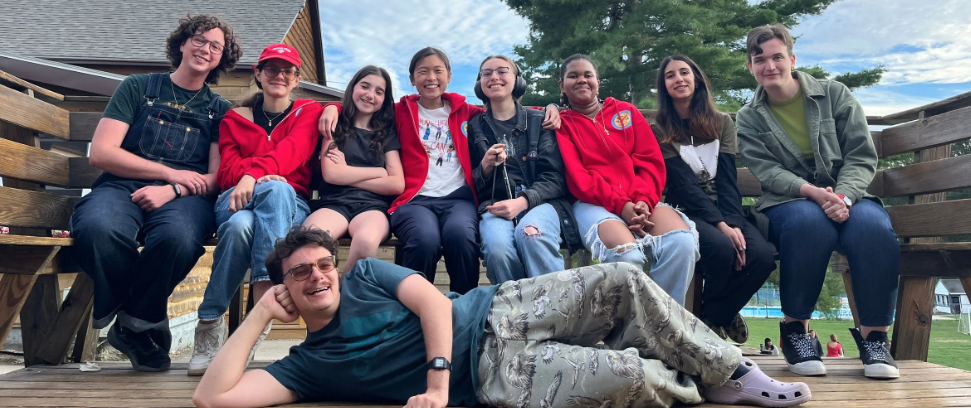On the third night of WriCampia 2025, sitting on the wet benches of the camp office porch, I was surprised to see so many familiar and new faces. It was the second DDC meeting of 2025, including four new counselors to my left and right. I soon learned that they weren’t just average counselors who wanted to check out the new late-night elective announced during dinner: they were like us. They understood what it was like.
As everybody shared around the circle, I started to wonder if any of the upsetting national policy developments had been impacting the lives of my new peers. Anyone who has access to the news is constantly bombarded by headlines regarding the current administration’s efforts to restrict DEIA, (Diversity, Equity, Inclusion, and Accessibility) programs, the cuts to medical research that would develop life-saving treatments for patients, and the threats of millions losing health insurance coverage. I wondered how these changes were impacting members of DDC—young people living with disabilities and chronic conditions, and I interviewed the group to dig deeper.
Before President Trump took office in January 2025, Senior camper Quinn M., 17, was enrolled in an NIH study on long COVID, which has impacted Quinn since 2022. Quinn had provided their health records and data to the study, in hopes of contributing to results that could inform them and other long COVID patients on their condition. But due to the cuts to NIH funding, that study was shut down.
“There’s no sense of security right now, that’s the truth,” shared Counselor Anthony. With his 26th birthday fast approaching, Anthony will soon no longer receive coverage under his family’s health insurance plan. With President Trump’s recent passage of his “Big Beautiful Bill,” it is predicted that the bill’s immense healthcare cuts will result in about 11.8 million Americans losing health insurance coverage over the next decade, according to the Congressional Budget Office (CBO). For Anthony, without a stable job, the certainty of accessing healthcare coverage remains uncertain, especially given that the bill has caused stricter work requirements to qualify for state coverage.
Adding to the feeling of uncertainty, Emilia K., 14, said, “Other people can adapt to a changing world, but for us, it’s different.” For those living with chronic health conditions, unpredictable flares and complications can occur. These individuals also rely on costly medications and medical devices, meaning that reliable health coverage is essential to their sense of safety.
At a time when the disabled and chronic illness community is under attack, safe spaces like DDC, where disabled individuals can share stories and find support, are becoming even more important. When I asked DDC members how this group had impacted them personally, Molly K. said, “It makes you feel human.” Nodding in agreement, Anthony said, “There was nothing like this when we were kids.” In response, counselor Suz B. shared that finding other disabled people has given them a feeling of visibility, adding, “I learned being one of them doesn’t mean being an outsider.”
When I asked DDC members what they wished others knew about their disabilities, Molly said, “It’s totally cool to ask questions. Disability doesn’t have to be a touchy subject.” Emilia nodded in agreement, adding that even if you fear you’ll make the other person uncomfortable, it doesn’t mean you shouldn’t ask.
No one can truly understand what it’s like to live with a disability without having one. But approaching disabled people with an open mind, a willingness to listen, and no assumptions, can minimize the stigma of disability and help foster inclusive spaces for us to thrive. ✎






